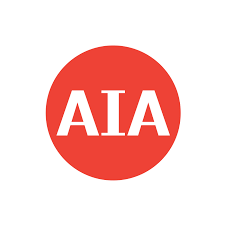Smoothing Iowa’s child-care ‘cliff effect’ a top priority for United Way

United Way of Central Iowa wants to make the term “child care cliff effect” top of mind for every state lawmaker this coming legislative session.
Lower-income Iowa families often face this so-called cliff effect — which forces them to choose between turning down a pay raise or promotion, or accepting the higher pay that would push them over the income limit to qualify for the Child Care Assistance program. Currently set at 145 percent of the federal poverty level, the income limit is just under $24,000 gross annual income for a family of four. For a United Way of Central fact sheet about the cliff effect, click here.
Smoothing that cliff effect by raising the Child Care Assistance program income limit to 200 percent of the federal poverty level was one of the key priorities highlighted this morning at United Way’s annual legislative breakfast, which drew a crowd of about 250 community and business leaders. In addition to that priority on the income front, United Way also set legislative priorities for its advocacy areas of education, health and essential needs.
During a panel discussion at the event, 24-year-old Kelly Dejoode, a single working mom with a 3-year-old son, described how she lost her child care assistance when a pay raise put her above $13 an hour as a teaching assistant. Fortunately, she got access to subsidized care through a United Way program that provides limited funding to child care providers to assist low-income families.
Raising the income limit to 200 percent would expand access to child care to more than 4,100 additional families in Iowa, United Way estimates. The organization says that nearly 18,000 parents in Central Iowa quit a job, did not take a job, or greatly changed their job in 2016 due to child care issues.
Other key legislative priorities include:
Education: Reauthorize the Secure an Advanced Vision for Education (SAVE) school infrastructure sales tax to extend or eliminate the sunset provision. All 20 United Way of Central Iowa school districts have endorsed the need for the funding.
Health: Provide appropriate state funding to start implementing a children’s mental health system and to meet the needs of the already existing adult system. The systems should focus on early interventions and prevention, which can alleviate more complex mental health conditions later in life and reduce cost burden.
Essential needs: To help food pantries fill the increasing number of families in need, enact legislation to exempt Iowa-based food banks and pantries from sales taxes to allow additional meals to be served.
Dave Stone, chief advocacy officer for United Way of Central Iowa, said afterward that the funding needed to raise the child care income limit is already available through a federal block grant the state has received of about $21 million, plus about $12 million in state funding held over from the previous fiscal year.
“One of the key messages we want to share is that the funds are there,” he said. “Let’s fully utilize them for child care.”
Lower-income Iowa families often face this so-called cliff effect — which forces them to choose between turning down a pay raise or promotion, or accepting the higher pay that would push them over the income limit to qualify for the Child Care Assistance program. Currently set at 145 percent of the federal poverty level, the income limit is just under $24,000 gross annual income for a family of four. For a United Way of Central fact sheet about the cliff effect, click here.
Smoothing that cliff effect by raising the Child Care Assistance program income limit to 200 percent of the federal poverty level was one of the key priorities highlighted this morning at United Way’s annual legislative breakfast, which drew a crowd of about 250 community and business leaders. In addition to that priority on the income front, United Way also set legislative priorities for its advocacy areas of education, health and essential needs.
During a panel discussion at the event, 24-year-old Kelly Dejoode, a single working mom with a 3-year-old son, described how she lost her child care assistance when a pay raise put her above $13 an hour as a teaching assistant. Fortunately, she got access to subsidized care through a United Way program that provides limited funding to child care providers to assist low-income families.
Raising the income limit to 200 percent would expand access to child care to more than 4,100 additional families in Iowa, United Way estimates. The organization says that nearly 18,000 parents in Central Iowa quit a job, did not take a job, or greatly changed their job in 2016 due to child care issues.
Other key legislative priorities include:
Education: Reauthorize the Secure an Advanced Vision for Education (SAVE) school infrastructure sales tax to extend or eliminate the sunset provision. All 20 United Way of Central Iowa school districts have endorsed the need for the funding.
Health: Provide appropriate state funding to start implementing a children’s mental health system and to meet the needs of the already existing adult system. The systems should focus on early interventions and prevention, which can alleviate more complex mental health conditions later in life and reduce cost burden.
Essential needs: To help food pantries fill the increasing number of families in need, enact legislation to exempt Iowa-based food banks and pantries from sales taxes to allow additional meals to be served.
Dave Stone, chief advocacy officer for United Way of Central Iowa, said afterward that the funding needed to raise the child care income limit is already available through a federal block grant the state has received of about $21 million, plus about $12 million in state funding held over from the previous fiscal year.
“One of the key messages we want to share is that the funds are there,” he said. “Let’s fully utilize them for child care.”







